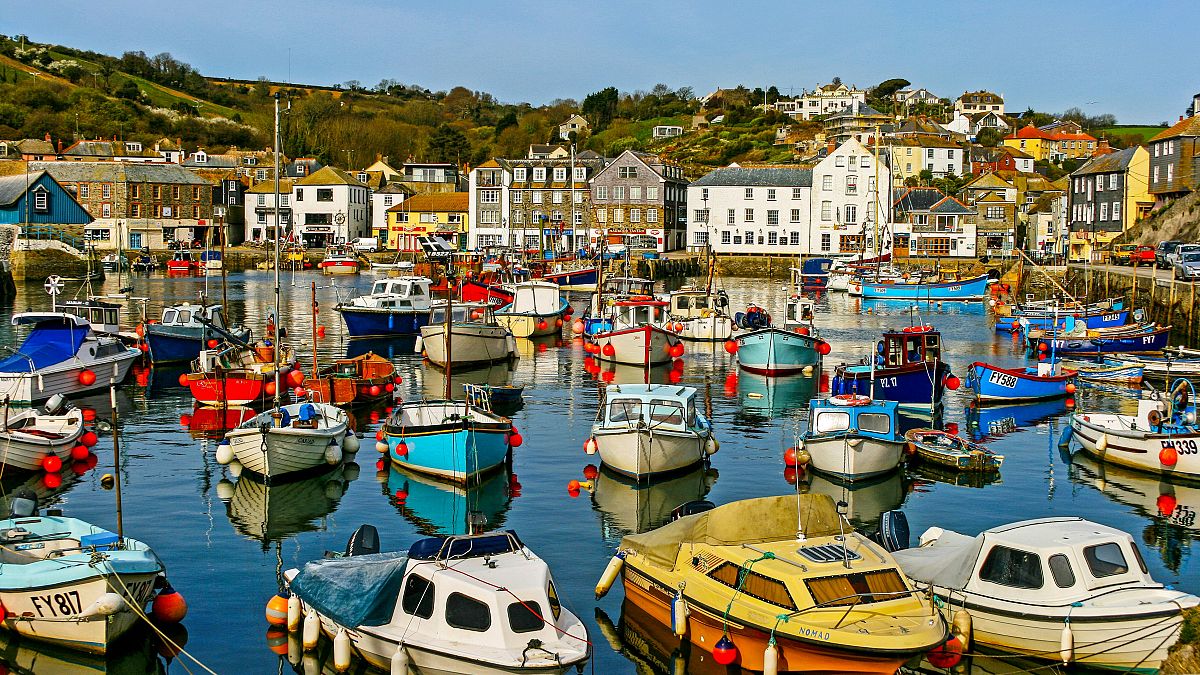
Europe’s holiday hotspots are overrun with second homes, with account for roughly one in 10 properties in France.
In 2022, the flower-bedecked, lakeside town of Gérardmer in the Vosges mountains was rattled by a spate of vandalism attacks.
An environmental saboteur targeted outdoor jacuzzis at holiday rentals and second homes amid rising tensions between tourists and local residents during a water shortage emergency.
Since then, there has been growing discontent in holiday destinations in France as locals contend with the soaring number of second homes.
Across Europe, other tourist hotspots are also feeling the strain; in Cornwall, Wales, Barcelona and Lisbon, residents are being priced out.
Over 90% of properties are second homes in some French communities
Roughly one in 10 properties in France is a second home, some owned by foreigners but predominantly by French people.
Affordable prices in rural zones mean having a holiday home is a luxury that is not just accessible to the rich.
Along France’s glitzy coastlines and throughout its bucolic mountain ranges, communities are losing their housing to tourists.
The ski resort of Germ in the Haut-Pyrénées classed nearly 97 per cent of properties as second homes in 2019.
French residents protest against second home owners
While having dozens of properties that lie empty for large portions of the year is not conducive to community spirit, it is also fuelling a serious housing crisis in France.
Thousands of communes are officially designated as ‘zones tendues’ – ‘tense zones’ experiencing a housing shortage and pricing out of locals.
In these areas, authorities can increase the housing tax on second homes by up to 60 per cent.
In Saint-Tropez, for example, the tax hike on holiday properties raised an estimated €3 million in 2023 which the council say will be used to develop affordable homes for residents.
The regulations have been spurred by mounting local resentment at the growing unaffordability of homes in their own community.
Like in Gérardmer, frustration has sparked vandalism in the Brittany département. In 2022, two properties in Morbihan were graffitied with the messages “Finis les riches” (No more rich people) and “La BZH aux BZH” (Brittany for the Bretons).
Throughout Brittany and Corsica, second homes – which make up as many as one in three properties – have increasingly become targets for arsonists, French media has reported.
Recently, regional authorities in the two areas proposed plans to limit the purchasing of properties to those intending to live in them permanently.
‘Desperation’: Cornwall residents grapple with rising second home ownership
In the UK, tensions have flared in Cornwall as local residents face a similar housing crisis.
In 2022, graffiti slogans appeared on a number of properties. “Second home owners give something back: Rent or sell your empty houses to local people at a fair price,” was written on a holiday home in St Agnes.
Property prices have been steadily rising along the coastline; the town of Redruth saw an increase of 25 per cent from 2019 to 2022.
“Vandalism is bred from desperation. If that was my home, I’d never leave it,” one St Agnes resident wrote on a local news site in response to the graffiti messages.
“People have the wrong priorities in life. Every time we walk past this house and others all I think about is how sad it is that it sits there empty most of the year when so many people want to live here permanently and can’t find anything to buy or rent.”
In the Cornish town of St Ives, a 2016 policy prohibited newbuilds from being used as second homes. Years down the line, however, it seems to have had little effect as attention simply moved to converting existing homes into rentals.
UK councils introduce tax hikes for second homes
In Scotland, 25 out of 32 of the country’s councils have abolished the 10 per cent council tax discount on second homes.
Wales has gone a step further and announced a 300 per cent tax hike for second home owners from next year.
The pricing out of residents has had the collateral consequence of a declining number of Welsh speakers, particularly in rural areas.
In Devon in southwest England, seaside towns are overrun with holiday lets. One in five properties in Salcombe is a second home, while in West Devon it is one in 12.
West Devon is doubling council tax on second homes from April next year and Cllr Ewings, leader of West Devon Borough Council, has suggested introducing a policy similar to St Ives.
“There are just too many holiday homes. If they are run as businesses to make a profit for the owner then of course they should pay commercial waste charges like every other business,” Richard Baylay, a retired crab fisherman, told UK newspaper MailOnline.
“So I absolutely support what the council is trying to do. When I was young, Salcombe was a very different place. We’ll never get it back. It was ours but now it’s gone.”
